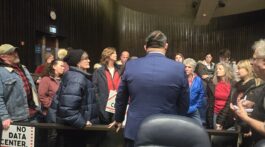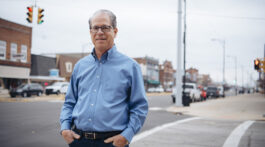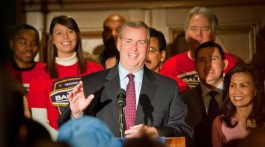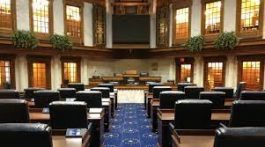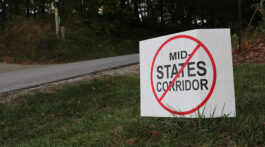By Abdul-Hakim Shabazz
I had trouble sleeping the other night. My trusty edible failed me, and not even the dogs pacing at 3 a.m. could distract me. I wasn’t tossing and turning over email or politics — I was up thinking about crime, the kind that turns downtown Indy into a war zone every time there’s a holiday or a warm weekend.
Let’s cut the nonsense. Indianapolis wants to be a global city — but global cities don’t run on chaos. We’ve got violent crime surging, budget shortfalls looming, a sexual harassment scandal at the highest levels of local government, and growing calls for the mayor to resign. The optics aren’t just bad — they’re radioactive.
And while all that simmers, let’s address the obvious: if you’re 16 years old and walking around with an illegal firearm, firing into crowds, you’re not just a troubled youth — you’re a public threat. That doesn’t mean we give up on you, but it does mean you should expect serious consequences, because you’re playing by adult rules now.. If you’re 16, strapped, and spraying bullets into a crowd, you’re not a kid — you’re an armed menace. And if you want to cosplay as an adult gangster, you’re going to get adult charges, adult consequences, and possibly adult-level force. Don’t like it? Then maybe don’t open fire outside Steak ’n Shake.
This isn’t about being mean to kids. It’s about being honest with the community. And if we’re going to be honest, we’ve also got to look at the grownups who created the chaos. If your child is roaming the streets at 2 a.m., toting a gun and causing mayhem, while you’re at home binge-watching reality TV on a taxpayer-subsidized couch — we’ve got a problem. And no, it’s not the city’s alone to solve.
Let’s also be real: these kids aren’t just out after curfew by accident. They’re out because the parent — or more often, the one parent at home — either doesn’t know, doesn’t care, or is too overwhelmed to step in.
We also can’t ignore the window of risk: the hours between 3 p.m. and 7 p.m. are when kids are most likely to get into trouble. That’s when school is out, parents aren’t home, and structure disappears. This is where the business, faith-based, and educational communities must step in. Churches, mosques, synagogues, temples — they can all open their doors during that after-school window. College students can serve as mentors. And the business community? It can underwrite the cost of these programs and treat it as an investment in workforce development — because that’s exactly what it is.
Now to be fair, the city has done some good things: expanded support for violence interrupters, increased curfew enforcement, and boosted community investment. These are steps in the right direction. But…
We’re still avoiding the hard conversations. The ones about real accountability for both young offenders and their absentee or willfully negligent parents. The ones about consequences that actually stick — not just for teens with weapons, but for the adults collecting benefits while their kids wreak havoc.
So here’s a thought: What if we said, “Hey, if your kid is arrested multiple times for weapons or curfew violations, maybe you shouldn’t be collecting housing vouchers until you show you’re actually, you know, parenting.” That’s not cruel. That’s called accountability — something we’ve been allergic to lately.
We can also designate Economic Empowerment Zones — areas hit hardest by poverty and violence — where judges can impose sentencing enhancements. No mandatory minimums. Just the option to say, “You brought more destruction to a struggling neighborhood, and that’s going to cost you.”
And for those already gearing up for their legal pearl-clutching moment — relax. This idea passes constitutional muster. The zones are based on objective data, the enhancements are discretionary, and the case law (Apprendi, Blakely, Booker, et al.) supports exactly this kind of structured judicial discretion. So if someone’s gearing up to scream “unconstitutional,” tell them to scream into a law library.
And yes — we get why some kids carry guns. They’re scared. They’re traumatized. They want protection, status, control. But understanding the why doesn’t excuse the what. Fear doesn’t give you a free pass to shoot up downtown or fire into a crowd.
And yes — I know shootings are up across the country. But that’s like when my son used to tell me he did bad on a test because everyone else failed too. That’s not a defense — that’s an indictment. If we know there’s a problem, the answer isn’t to shrug and blend in with national failure. It’s to do better.
Which is why Governor Mike Braun should seize this moment. By backing a tougher but smarter approach to crime, he doesn’t just help clean up the capital city — he scores a major win for his Opportunity Agenda and breathes new life into the Marion County GOP. And if critics accuse him of playing politics? He can simply ask: “What’s your plan?”
Because what good is freedom and opportunity if you can’t be safe? We’re not talking about sending the National Guard into Indy — but there are meaningful, constitutional things the administration can do to help restore order and rebuild trust.
Because let’s be honest — silence isn’t compassion. It’s compliance. And too many people in power and parents have been quietly complicit while neighborhoods crumble.
Let’s just say, if someone wanted to lead this city — really lead it — this would be a strong place to start: bold plan, real data, a few sticks to go with the carrots, and just enough snark to keep things interesting.
Abdul-Hakim Shabazz is an attorney, political commentator, and editor of IndyPolitics.org. He has covered Indiana politics and public policy for more than 20 years. He is available to speak on this and other relevant topics. If you’re interested in booking him for commentary, panels, or events, reach out — let’s work something out.


